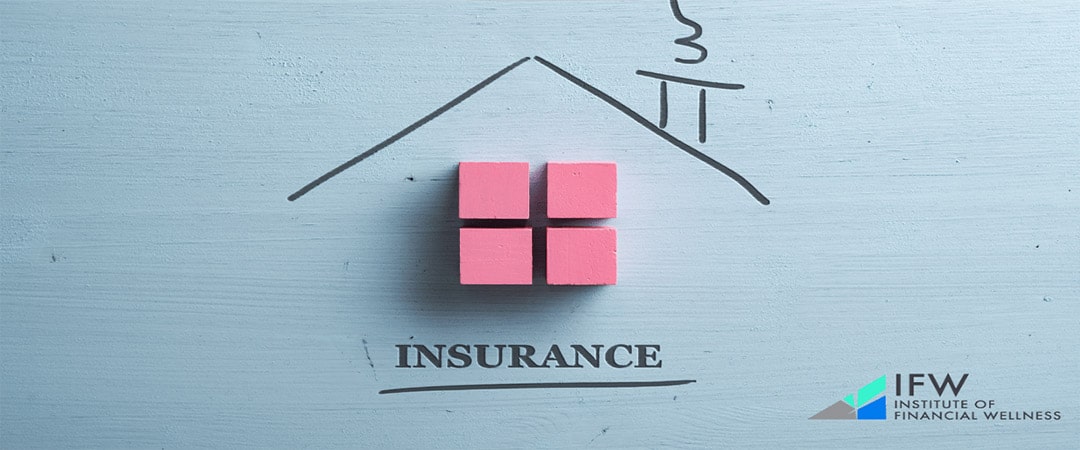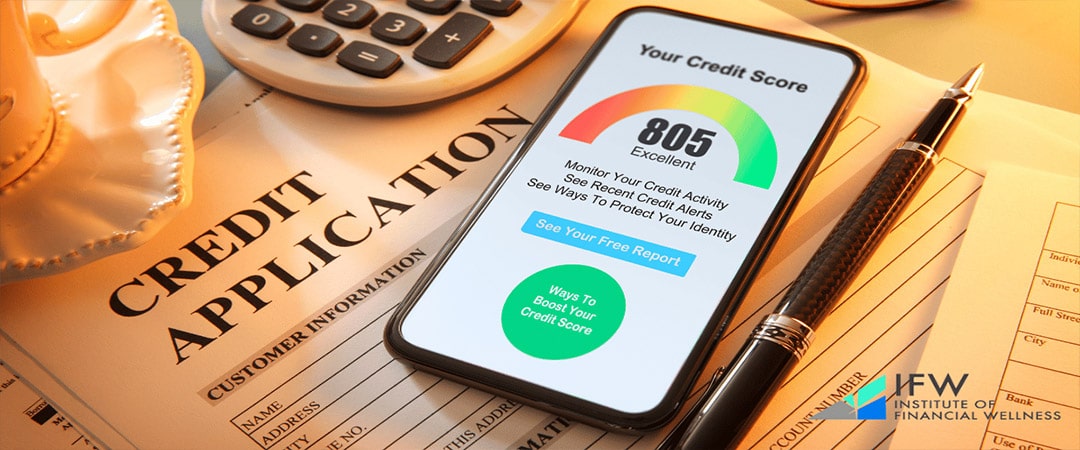“For last year’s words belong to last year’s language, and next year’s words await another voice.” – T.S. Eliot
As we welcome the new year, why not take this opportunity to ensure your financial well-being? With help from the elves, you can create a solid plan that will bring positive results. Are you prepared to learn the vital steps for getting ready before the turn of the calendar? You will need to set financial objectives and strengthen your emergency fund, boost savings aimed at retirement, attack credit card debt, refine investment strategies and insurance coverage assessment, and elevate your credit score while organizing finances in an efficient way, all supplemented by educating yourself about personal finance concepts. Are you ready to be financially secure in 2024? Let us begin!
Key Takeaways
- Set SMART goals and build an emergency fund to kickstart your financial journey.
- Optimize investments, tackle credit card debt, and review insurance coverage for a secure future.
- Automate savings & payments, declutter finances & educate yourself on personal finance trends for success!
Kickstart Your Financial Goals
If you’re aiming for financial independence, the best way to get there is by setting out clear objectives and coming up with concrete steps to meet them. Establishing SMART goals – specific, measurable, achievable, relevant, and time-bound, helps focus your efforts throughout the year. Examining your current monetary state of affairs and then prioritizing strategies such as building an emergency fund or boosting employer contributions into retirement accounts can help shape a successful path forward. Even seemingly minor daily actions over extended periods lead to considerable results eventually!
Assess Your Current Situation
Having knowledge of your financial health is key to setting achievable objectives. These are a few steps that can help you begin.
First, calculate your net worth, which represents the difference between what you own and what you owe. Then, make up a budget by registering all income and expenditures for each month. Afterward, analyze how much money goes out on daily expenses with an aim to reduce them if necessary.
By following these measures, it will be easier to have a complete idea of one’s fiscal condition so as to make wise choices related to economic plans, aspirations, or concerns. Armed with this clear understanding of finances it enables more reliable decisions when it comes down to establishing financially plausible goals in life.
Set SMART Goals
As we mentioned, SMART goals can help you stay focused and motivated throughout the year. An effective approach may be formulating yearly financial resolutions – like aiming for a certain amount of savings per month towards retirement or paying off credit card debt in six months. Also, regularly keeping track of progress should enable you to adjust your plan accordingly so that staying on target as well as success can be achieved.
Remember that making particular fiscal objectives is key when seeking lasting economic growth and prosperity!
Strengthen Your Emergency Fund

Another great strategy is to create an emergency fund in order to be financially secure during unexpected life events, like loss of employment or medical emergencies. Rather than resorting to credit cards and loans that could cause a build-up of debt over time, it’s much wiser to have your own reserve saved up for such occurrences. Let’s discuss how best to determine the amount needed and what savings account may give optimal growth with this money.
Determine Your Target Amount
Enter the realm of financial wizards! They sing the anthem of wisdom: stash away a magical three to six months of living expenses in your emergency fund and say goodbye to the temptation of raiding your other savings or retirement treasures during unexpected storms. Dive into the mystical art of budgeting, unveiling your monthly costs like a spellbinding magician revealing secrets. With this mystical number in hand, embark on a quest to build a fortress of financial security. Let the magic of your savings goal (and also the Christmas elves) be the calming charm that shields you through the unpredictable adventures of life!
Choose the Right Savings Account
Rev up your savings game! Turbocharge your financial fortress and better prepare for unforeseen financial burdens by selecting a high-yield account such as a money market fund or saving product with an elevated interest rate than standard bank accounts.
Reaping greater gains in terms of interest will expedite you reaching your desired amount more efficiently while also helping ensure that should anything unexpected arise, financially speaking, there is some cushioning set aside already.
Boost Retirement Savings

Maximizing your retirement plan contributions and diversifying your investment portfolio are keys to ensuring a comfortable future. With the right strategy, it’s possible you could even secure financial freedom sooner than anticipated. This guide will help you utilize employer benefits optimally while creating an ideal balanced retirement portfolio for yourself.
Maximize Employer Contributions
Various companies provide retirement plans such as 401(k)s and match a portion of the money you put in. To take full advantage of this benefit, make sure to contribute enough so that your employer will cover the entire amount matched. This “free” money is extremely beneficial because it can increase your long-term savings exponentially over time. Optimizing employer contributions puts you even closer to meeting all those future goals!
Diversify Your Portfolio
There are many ways to diversify your portfolio across different types of assets, including stocks, bonds, and cash. This creates a balanced mix that can help cushion you against market volatility.
As you grow older over time, revisiting the asset allocation in order to become more conservatively positioned will be necessary. This means lowering stock percentages while increasing allocations for safer vehicles like bonds or cash, and doing so helps ensure that all goals related to life events are taken into consideration when managing your financial portfolio.
Tackle Credit Card Debt

Handling credit card debt can be a source of stress for many, as the high rates and fees associated with them may compound quickly if not managed appropriately [1]. To help yourself become free from these financial burdens and enhance your overall economic well-being, it is essential to come up with an effective method of paying off this kind of debt. This guide will aid you in creating strategies that allow you to make progress toward becoming completely out-of-debt while utilizing the least amount possible on interest payments made towards your outstanding balance owed via credit cards.
Create a Debt Repayment Plan
It is important to create a repayment plan for credit card debt in order to meet financial goals. A strategy that can be implemented is listing all debts according to either interest rate or balance, then working on one at a time using either the ‘debt avalanche method’ (highest interests first) or the ‘debt snowball approach’ (smallest balances initially). Money can come from budget cuts and additional earnings by taking up side jobs; this extra money will help reduce outstanding debt more quickly.
Monitor Progress and Adjust as Needed
Monitoring your debt repayment progress consistently is a must if you want to stay on course and make the changes needed for success. You can download apps or use online trackers to help guide you and keep morale high as well.
If any clues pop up that implies a need for alterations, such as being overdue in payments or feeling stressed out by it all, take quick action: review your game plan and switch things around where necessary. Keeping involved with the goal of becoming financially independent will lead you towards achieving it when done correctly!
Optimize Your Investment Strategy

Having the right investment strategy is key to attaining your financial objectives, such as putting down a deposit for a house, paying for college tuition for your children, or creating an agreeable retirement fund. By learning how to strengthen this approach, you will be able to balance your portfolio by looking at different kinds of investments and getting counsel on investing matters.
Rebalance Your Portfolio
Dance through the market swings with a financial waltz! Your ticket to a successful investment journey is a finely tuned, well-balanced portfolio that grooves with your financial needs. Get ready to master the art of rebalancing—tweaking that asset mix to keep your risk levels just right and potentially score some sweet returns. But here’s the encore: don’t just set it and forget it. Make it a yearly (or more!) ritual to give your portfolio a chic makeover, aligning it with your investment dreams and risk tolerance. It’s not just investing; it’s a financial dance party!
Consider Alternative Investments
Level up your investment game with a splash of variety! Dive into the research pool and explore exciting opportunities like real estate or peer-to-peer lending. Allocate your funds strategically, and watch your returns do the money dance, outshining the competition. Real estate, for example, has the potential of appreciation in value over time through rental income or capital gains. With peer-to-peer investing, people are able to lend cash directly from individuals and get an interest yield back on their initial capital outlay [2]. Broadening portfolios utilizing various types of alternative investments could potentially result in improved returns across it.
Review Insurance Coverage

Elevate your safeguarding strategy without straining your budget! Tune into the rhythm of financial savvy by regularly reviewing your insurance coverage—yes, that includes life, disability, and property policies. Safeguard yourself like a pro against life’s unexpected plot twists—accidents, illness, or natural disasters. It’s not just reassessing; it’s your ticket to affordable yet robust protection. Ready to rock the stage of financial security? Let’s roll!
Assess Current Coverage
Take a friendly stroll through your life insurance policies, making sure they’re the perfect fit for your current chapter. If life throws in some big changes, like tying the knot or welcoming little ones, give your coverage a high-five with the right adjustments. It’s like wrapping your family in a cozy financial blanket for the future!
And don’t forget to give your disability and property insurance a warm hug. They’re your buddies against unexpected hurdles—accidents, illnesses, or even nature’s surprises. Keep your peace of mind intact by ensuring your protection squad is ready for whatever life throws your way.
Shop Around for Better Rates
Navigating insurance options? It’s like finding the perfect puzzle pieces for your protection plan! Compare the options available to snag the best deal—maximum coverage at a wallet-friendly price. And here’s a pro tip: bundle up! Pairing, say, your auto and home insurance can score you sweet savings on premiums. Shop around like a savvy explorer because rates vary, and finding the right fit ensures protection without breaking the bank. Let’s make insurance shopping an adventure!
Improve Your Credit Score

And what about the credit score? Maintaining a solid credit report is of utmost importance for being able to receive loans at lower interest rates or even attain discounted car insurance premiums [3]. Let’s discuss how you can improve your score and keep it in good standing by regularly monitoring your progress and developing beneficial debt behaviors.
Monitor Your Credit Report
Give your credit report a friendly check-in to spot any sneak-in mistakes or disparities that might throw shade on your credit rating. Uncover and tackle these issues like a credit superhero, ensuring your score stays top-notch, and your financial street cred remains untarnished. It’s not just reviewing; it’s defending the fortress of your credit score!
You should obtain one free copy from each of the 3 major bureaus annually in order to make sure all data included in it are both exact and current [4].
Establish Good Credit Habits
Unlock the secret sauce to a stellar credit score. Hit the jackpot by paying bills on time and juggling debt like a pro. Here’s a game-changer: set up automatic payments for an organized financial groove that banishes stress. Keep riding the wave of wisdom, and voila! You’re not just boosting your credit; you’re blazing a trail toward financial goals that scream success. It’s not just credit; it’s your ticket to the score of your dreams!
Simplify Your Finances

Organizing your money and financial documents can make it easier to manage, saving you time and stress. Let’s delve into tips for streamlining your finances, such as automating savings deposits & bill payments along with organizing accounts & records.
Automate Savings and Bill Payments
Establishing automated transfers for savings and payments can ensure accurate transactions while decreasing financial pressure. Automating these processes comes with several advantages: it boosts the odds of conforming to your money goals, encourages ongoing saving habits, and minimizes potential risks such as late charges or a bad credit score caused by forgotten payments. You won’t have to stress about missing due dates because everything is handled automatically.
Declutter Your Financial Life
Streamlining your financial life can be as simple as consolidating accounts and going paperless. This allows for higher interest rates, reduced fees, and simplified record-keeping with less mess to deal with. It is also wise to organize crucial documents so that you are always prepared when it comes to managing your finances efficiently. Stay in the driver’s seat of your financial journey by keeping tabs on essential paperwork—your golden ticket for quick access when money matters or other crucial info makes a surprise entrance!
Educate Yourself on Personal Finance

Remaining up-to-date with the trends in personal finance is crucial to making sound decisions and achieving financial health. To become an informed consumer, you can look into reading books or blogs related to the topic, as well as attending seminars or workshops.
Read Books and Blogs
There are many ways to stay up to date on current trends in the personal finance world that can help you remain well-informed and knowledgeable so that you can make decisions that allow for better financial success. Gaining a comprehensive understanding of these topics is incredibly important, and to do this, reading books, articles, or blogs related to this sector should be your first step! Explore various concepts from professionals who write about it every day – this will give you all the information necessary to make astute money choices that improve long-term fiscal health. So don’t wait any longer; begin learning right away by finding sources of literature and data available online today!
Attend Workshops and Seminars

Attending workshops, seminars, and webinars can offer an invaluable chance to gain useful skills in managing finances from experienced professionals. These meetings typically cover a vast array of financial topics (ranging from budgeting and investing to debt management) so that you may tailor your education to fit your personal requirements and interests.
By taking part actively in such activities related to personal finance knowledge, you equip yourself better for navigating the complexities it has and achieving aims financially-related effectively.
The Institute of Financial Wellness

The Institute of Financial Wellness offers a full range of services, technologies, and knowledge to support individuals in achieving their financial goals. With these resources at hand, you are able to take charge of your future economic situation.
This comprehensive program provides guidance as well as valuable tools that will help our clients achieve better overall fiscal health while pursuing the life they’ve always wanted. Contact a financial advisor for more information.
Full Summary
At the start of a new year, it is essential to evaluate your finances and take control. A key step toward attaining economic independence is by setting specific fiscal objectives, accumulating an emergency fund for unexpected events, ensuring you have an efficient investment plan in place, as well as tackling any existing credit card debt. Equipping yourself with knowledge on personal finance topics will help significantly on this quest to gain financial freedom and provide more stability towards one’s prosperity goals. To get started today on the path of success within one’s money matters – all that needs to be taken into account first are those simple yet powerful steps above!
Frequently Asked Questions
What are the 7 key components of financial planning?
In order to create a successful financial strategy, it is important to stay in control of your budget and taxes, manage debt wisely, make prudent investments for the future, ensure sufficient liquidity flows throughout all areas of life, and communication between stakeholders must be transparent. All these components are integral pieces of crafting.
How do you manage finances in the new year?
This year is the time to make sure you take charge of your finances. Developing a budget, minimizing and paying off debt, conserving money, and learning about finance. These are all crucial monetary objectives for 2024.
Create an outline and be certain to evaluate it consistently in order that you remain focused on achieving what you have set out to do financially. Investing can also help as part of this plan, so now might be the best time to get started with investing, too!
What is a SMART financial goal?
A SMART financial goal is one that is Specific, Measurable, Achievable, Relevant, and Time-bound. This framework helps individuals define their financial objectives in a clear and structured way, making it easier to plan, track progress, and stay motivated.
How can I determine the target amount for my emergency fund?
Aim to save three to six months’ worth of living expenses for your emergency fund so that any unanticipated costs won’t come out of other savings. Setting a goal amount for this purpose should be straightforward and will help you stay prepared.




